Design Engineering Research Group
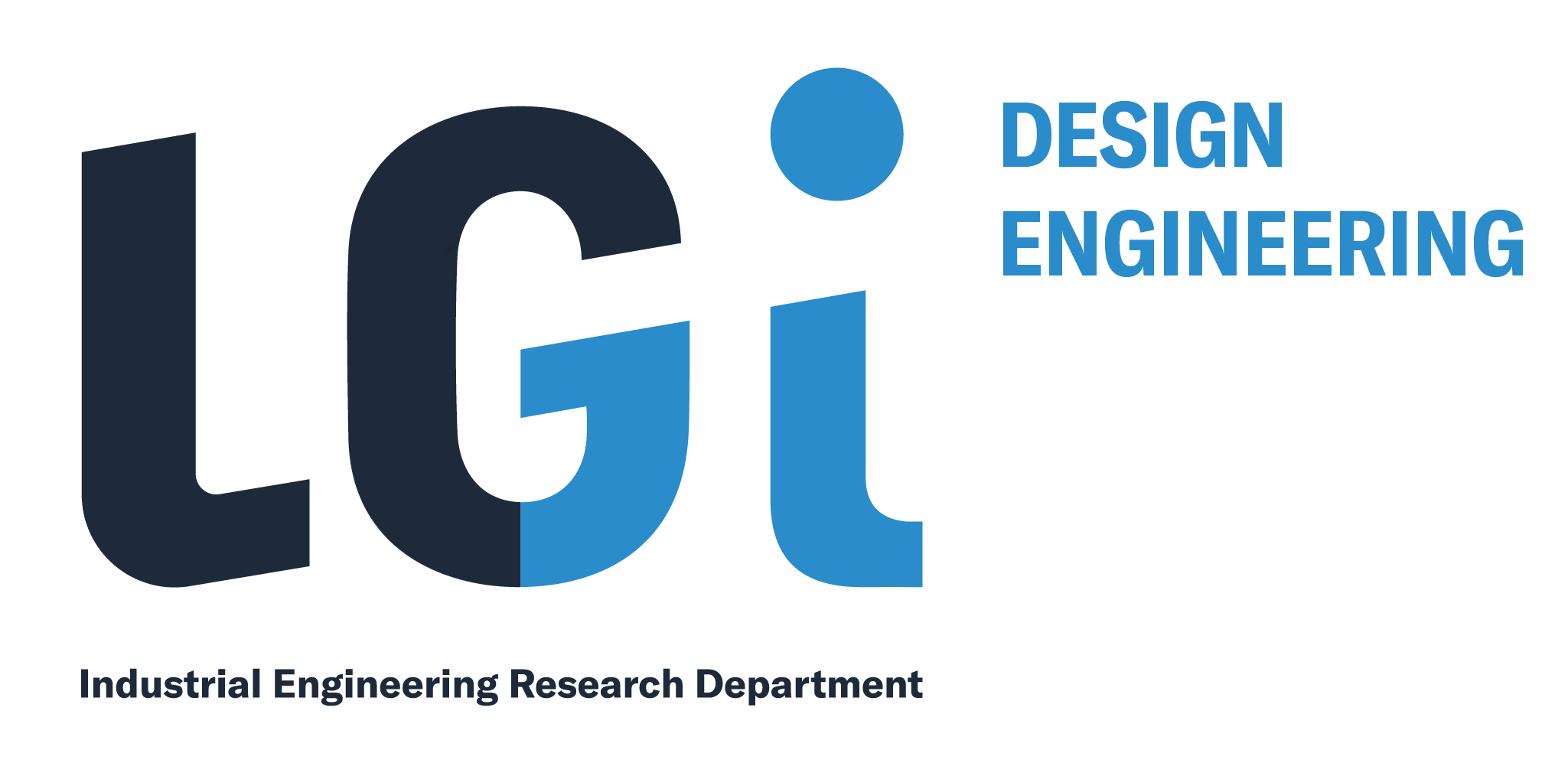
Our research aims at assisting complex system design and engineering activities, combining the product/service, process and organizational dimensions.
The main topics are about diagnosing, modeling, analyzing, simulating and optimizing complex systems through three research axes.
Who are we?
Our research group comprises (December 2024) 34 members of 9 different nationalities:
- 6 full professors
- 1 associate professor
- 4 assistant professors
- 2 senior researchers
- 1 post-doc
- 20 PhD students
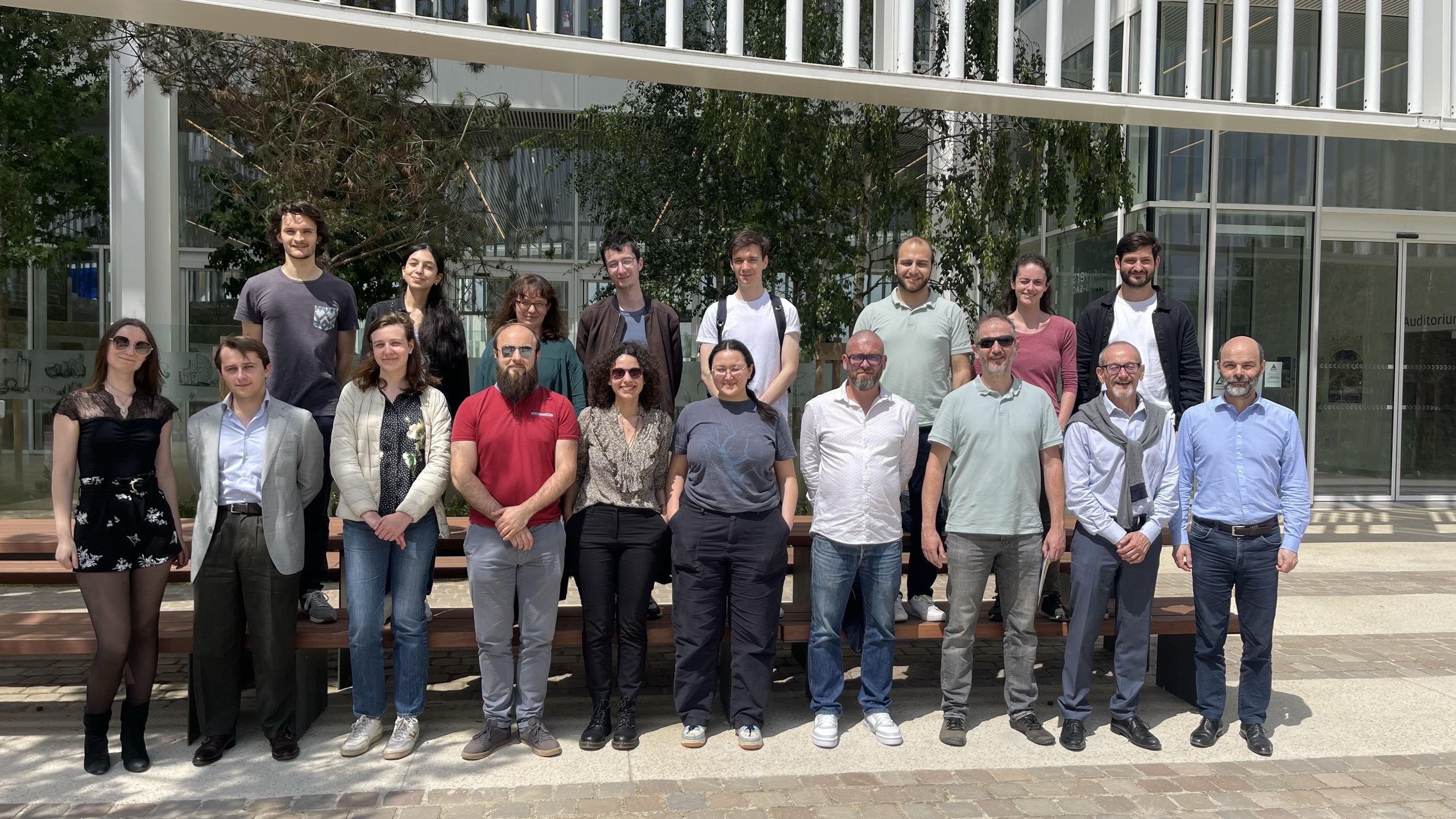
Our three research axes
Design of complex socio-technical systems
The objective is to develop decision-support methods and tools for the design of products/services/systems, organizations, projects and systems of systems.
The main research themes are :
- Product-project design
- Human-systems integration (HSI)
- Decision support for architecture design
- Configuration and validation of socio-technical systems
- Including developments for the health sector
- Knowledge management
- Industry of the future (also one of LGI's cross-disciplinary themes)
Flagship projects
- Industrial chair Managing Procurement Risks in Complex Projects with TotalEnergies (2012-2023)
- Erasmus + Neprev: Towards the next production revolution with Africa (2019-2022)

- FlexTech industrial chair: Human Systems Integration (2019-2024)

Design of sustainable systems
The objective is to develop methods and tools to model, measure and optimize the sustainable performance of complex systems.
The main research themes are :
- Circular Economy, including:
- Eco-design of complex systems
- Eco-innovation
- Developments of circular economy for the health sector
- Sustainable mobility
Flagship projects
- Anthropolis industrial chair: human-centered mobility (2015-2023)
![]()
- Erasmus + EUSL-Energy: Europe Sri Lanka Capacity Building in Energy Circular Economy (2020-2023)
![]()
- Alliance CircularIT industrial chair: digital technology at the service of the Circular Economy (from 2021)
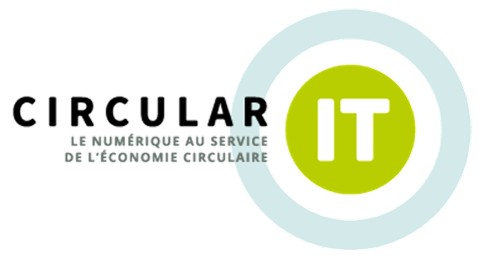
- ANR project GreenLocal3D: global approach for the recycling in short circuit of used plastic by additive manufacturing (2023-2026)
- MALIC (Marie-Lannelongue Innovation Center) SESAME Filière France 2030 project: eco-design of medical devices
Innovation engineering
The objective is to develop structured innovation methods and tools that create value for beneficiaries and anticipate future environmental and social impacts.
The main research themes are :
- Usage-driven innovation
- Reconciling innovation engineering approaches with industrial design approaches
Design Engineering for Sustainability
Our research activities actively contribute to several Sustainable Development Goals of the United Nations.
Among the 68 journal papers published from 2018 to 2023, 44 are positively contributing to sustainability, as well as several research projects and scientific advances, among which:
- Good health and well-being (SDG#3): collaboration with AP-HP (Paris hospitals), Marie Lannelongue Hospital, CHU de Rennes and GE Healthcare about health data management and circular economy; attachment of Tu-Anh Duong (PUPH - University Professor and Hospital Practitioner) to the team; consideration of the social dimension in projects (notably the Anthropolis Chair) and integration of social LCA skills (recruitment of Ghada Bouillass as an assistant professor).
- Industry, Innovation & Infrastructure (SDG#9): work in circular economy (CircularIT alliance and other projects), eco-design, traceability and end-of-life of equipment (CircularIT alliance and other projects); work in usage-driven innovation (RID methodology); work in future mobility (Anthropolis Chair).
- Sustainable cities and communities (SDG#11): work on sustainable mobility in Île-de-France region and Cairo (Anthropolis Chair).
- Responsible consumption & production (SDG#12): work in circular economy and eco-design (research axis Design of Sustainable Systems).
- Climate action (SDG#13): work in circular economy and eco-design (research axis Design of Sustainable Systems); decision-making integration (Chair in “Managing procurement risks in complex projects”).
- Partnerships for the goals (SDG#17): two recent European Erasmus + projects on the development of educational programs for developing countries (Sri Lanka and Africa) on the circular economy (project EUSL-Energy) and the industry of the future (project NEPREV).

Our PhD theses
We currently supervise 20 doctoral theses, in close collaboration with numerous industrial and institutional partners. Most of these theses are co-supervised with colleagues from other LGI teams, or from other French or international universities.
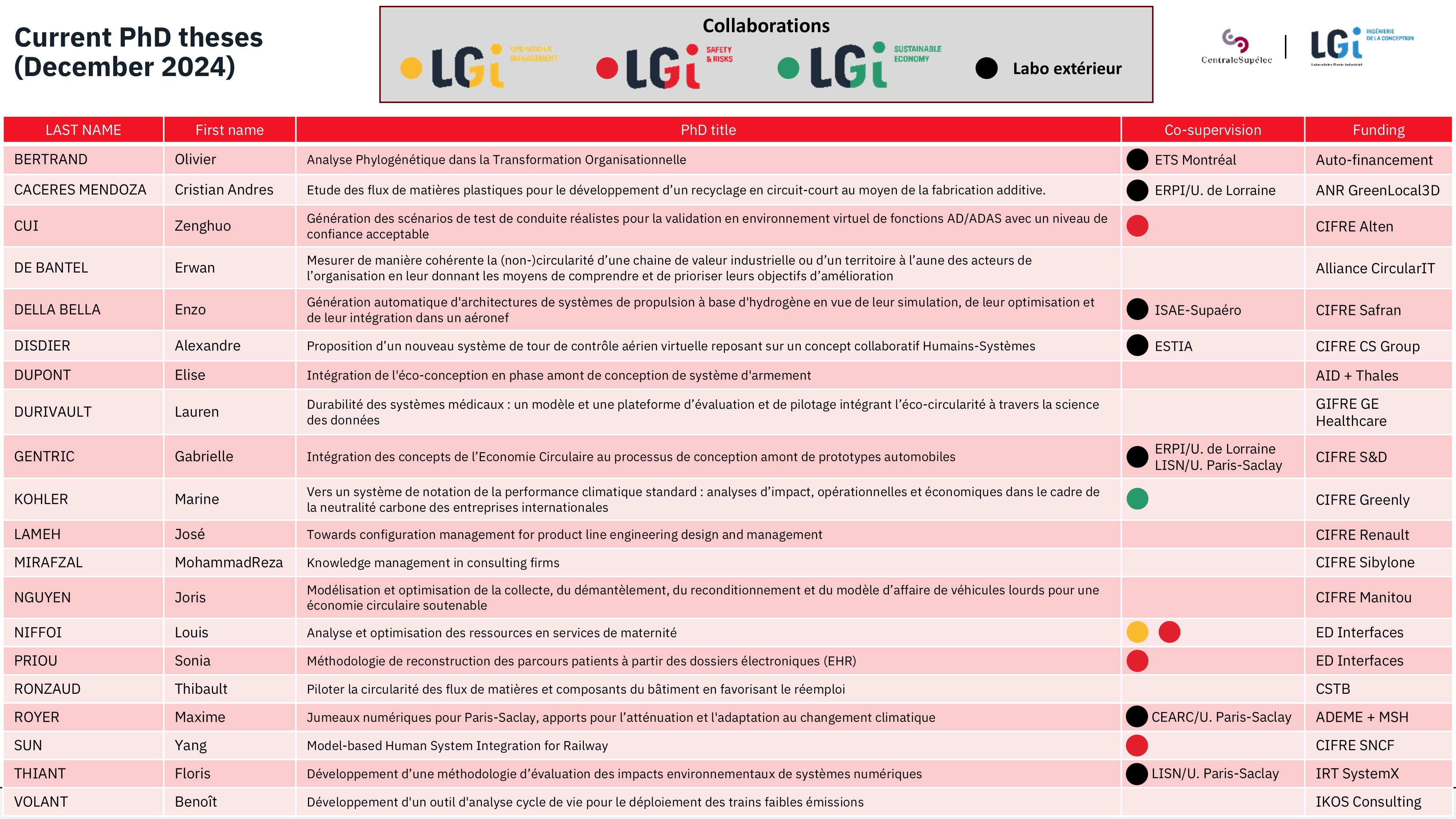
Our scientific publications
Most of our scientific publications are available in open access on HAL, the French open archive for publications.

Our research partners
We collaborate with a wide range of partners in industry (large corporations, SMEs, consultancies, hospitals, NGOs...), institutions and academia.
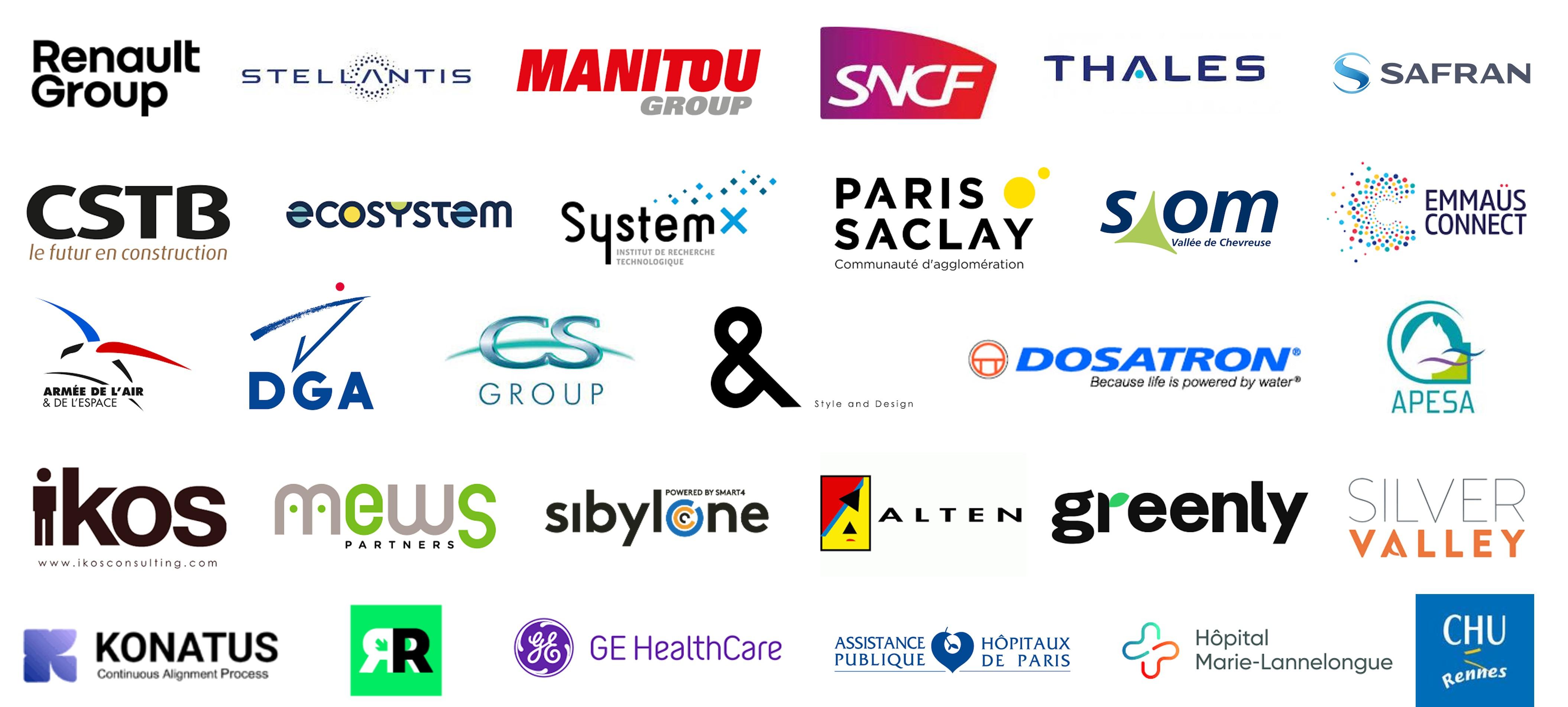
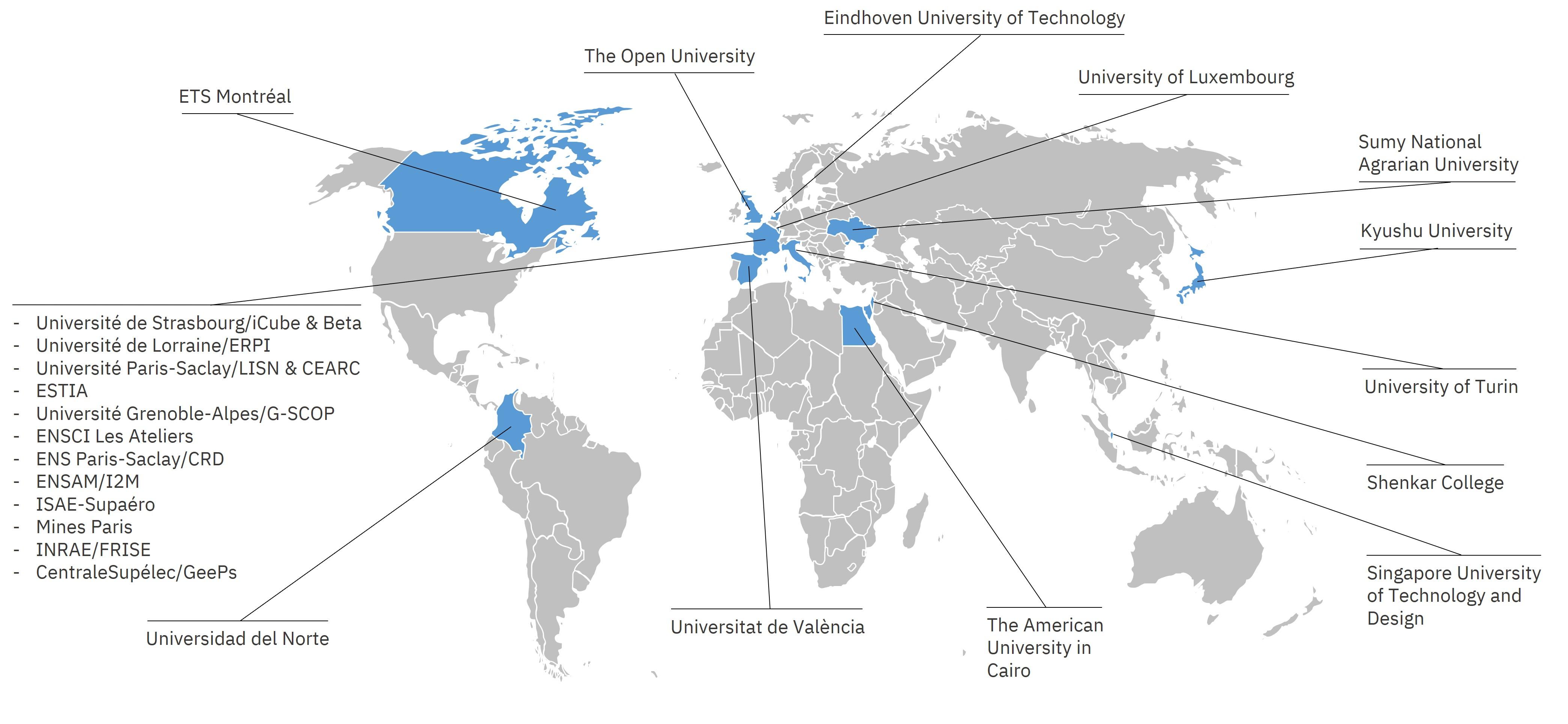
Our teaching activities
We are actively involved in teaching activities in the engineering curriculum at CentraleSupélec, one of France's top engineering schools, and more generally at Université Paris-Saclay. Our teaching activities deal with engineering design, circular economy (including eco-design, eco-innovation, industrial ecology, Life-Cycle Assessment), systems engineering, project management and innovation management.
Discover an overview of our teaching activities (in French).
Master's degree in Complex Systems Engineering, specialization in Design & System Sciences
We are particularly involved in the Master's degree in Complex Systems Engineering from Université Paris-Saclay. We manage the specialization in Design & System Sciences (8 students per year). Students are integrated into our research group and write a Master's thesis in line with the team's themes.
Contact us!
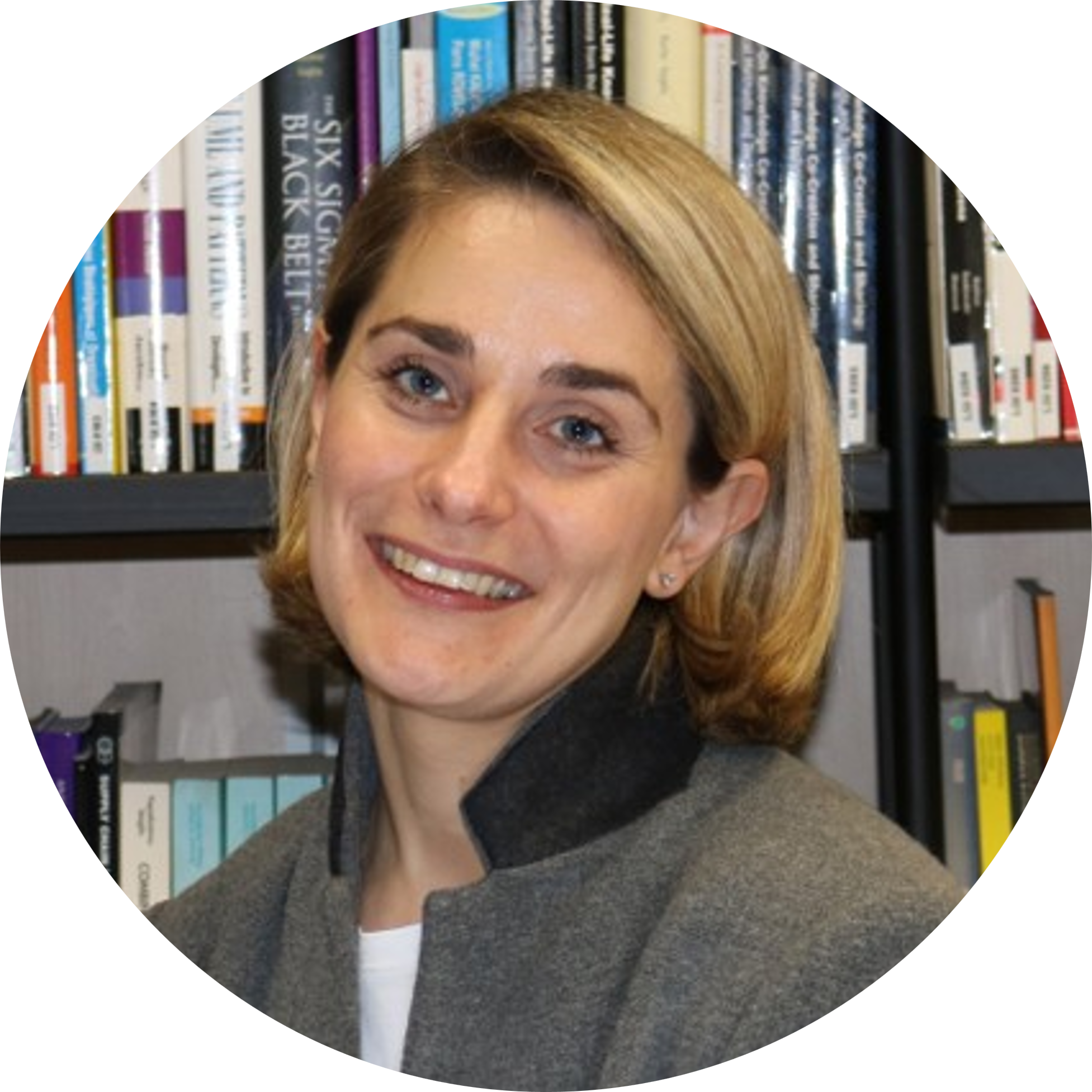
Marija Jankovic
Full professor
Head of the Design Engineering Research Group
Industrial Engineering Research Department
CentraleSupélec, Université Paris-Saclay
E-mail: marija.jankovic@centralesupelec.fr
Phone: +33(0)1.75.31.64.27
Office: Building Bouygues, office sb.235
